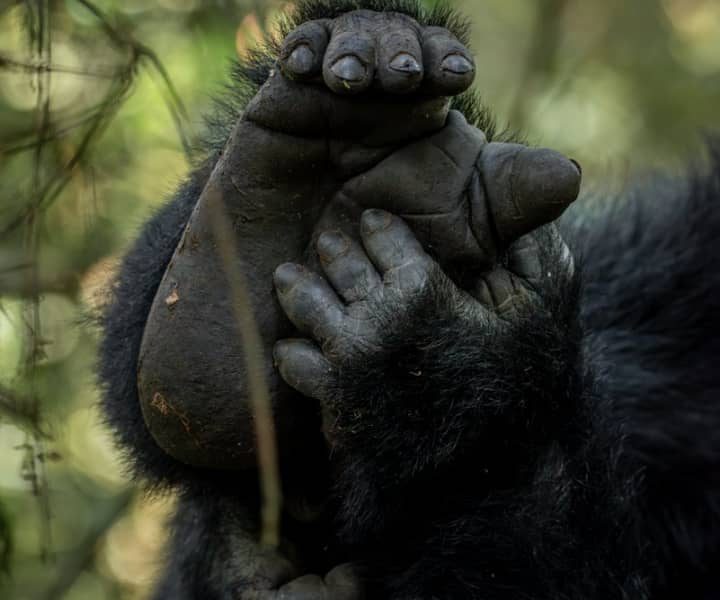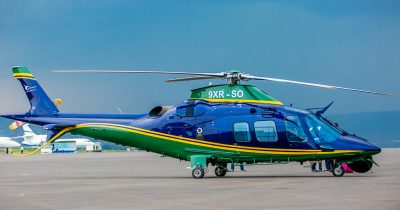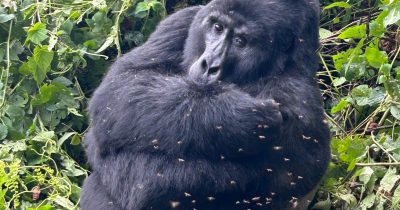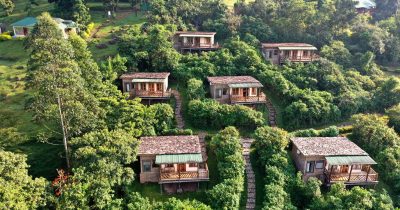Sustainable Gorilla Safaris in Uganda: Travel Responsibly
Sustainable gorilla safaris in Uganda offer more than remarkable wildlife experiences—they provide an opportunity to travel mindfully. Travelers should adhere to several guidelines that help them engage in these adventures without disrupting the daily lives of these magnificent apes. For travelers and tour operators like Native Africa Tours, sustainable gorilla safaris extend beyond mere terminology; when mountain gorillas and their habitats thrive, the surrounding local communities also benefit.
Tour operators such as Native Africa Tours and park rangers are cautious about respecting endangered mountain gorillas and their environment. However, participating in a sustainable gorilla safari in Uganda requires collective responsibility—it’s not solely the duty of park rangers, tour operators, or accommodations to practice environmental preservation. Travelers, too, must observe specific guidelines while seeking and interacting with the giant apes in their natural settings.
This guide outlines how to enjoy Sustainable Gorilla Safaris in Uganda, covering areas like selecting eco-friendly lodges, understanding park regulations, and supporting grassroots initiatives.
Choosing eco-friendly accommodation
Whether staying at a Safari Lodge or a Tented Camp, selecting eco-friendly accommodations is key to enjoying eco-conscious gorilla tours in Uganda. Opt for lodgings that hold an eco-tourism certification or, at the very least, can clearly explain their eco-friendly practices.
From the very beginning of your gorilla tour inquiry, it’s essential to seek out eco-friendly accommodations. Your choice of lodgings that actively contribute to conserving and protecting the endangered Giant Apes and their natural environments is a decisive step in the collective responsibility of environmental preservation. Criteria for your choice should include the use of renewable energy sources such as solar power, the implementation of waste reduction and recycling initiatives, and the construction with sustainable materials to lessen their ecological footprint.
Book your gorilla tour with an eco-friendly Tour Operator
Wildlife conservation, particularly for mountain gorillas, has been fundamental to Native Africa Tours. Through charitable contributions towards community development, the protection of mountain gorillas, and children’s education, alongside increasingly eco-friendly gorilla tours, we take pride in being an environmentally conscious company.
Using biodegradable products
When organizing gorilla tours in Uganda, we suggest a thorough packing list typically featuring toiletries like shampoo, conditioner, and deodorant. However, we advise choosing biodegradable products, as this is an excellent way to honor the natural habitats of mountain gorillas.
Following gorilla trekking rules and regulations
Visitors must adhere to gorilla trekking rules and regulations at all times to ensure respectful and proper behavior in the presence of these Giant Apes. Key guidelines include keeping a minimum distance of 7 meters, remaining silent when tracking or observing them, refraining from feeding mountain gorillas, as certain foods can be harmful, and avoiding flash photography. These regulations promote responsible interactions with the gorillas, including avoiding direct eye contact and minimizing disruptions to their natural behaviors and habitats.
Sticking to your group during trekking
Gorilla trekking excursions accommodate groups of eight visitors. Even if your friends follow a different gorilla family, it’s important not to leave your group or stray alone. Doing so risks your safety and exceeds the recommended eight visitors per habituated gorilla family. These visitor limits are designed to minimize disturbances to the endangered Giant Apes while ensuring an exceptional experience. This regulation, enforced by the Uganda Wildlife Authority, safeguards these vulnerable animals from stress, loud noises, and potential dangers associated with close interactions with visitors.
Practicing a clean, natural environment
Another way to enjoy eco-friendly gorilla tours in Uganda is to keep clean and properly dispose of waste in designated bins, which can be found in the safari jeep or at the Safari Lodge. Additionally, consider packing reusable water bottles to minimize single-use plastics, using eco-friendly toiletries, and choosing Lodges or Camps that offer water refill points.
Adopt a Gorilla
By adopting, sponsoring, or fostering a mountain gorilla, you can significantly assist orphaned gorillas in receiving essential treatment, medication, and supplies. For just £4 a month, you will contribute to protecting these endangered wild animals. This initiative supports vital gorilla conservation efforts and offers an exclusive adoption pack. The pack includes a gorilla toy (or tote bag), a species fact sheet, an adoption certificate, and updates about the Giant Apes residing in Uganda’s Bwindi Impenetrable National Park.
Respecting mountain gorillas
The mountain gorillas you encounter inhabit their territories, so showing them the respect they deserve to enhance gorilla tourism practices is crucial. This involves refraining from feeding or disturbing them, maintaining a safe viewing distance—typically about 7 meters—limiting your viewing time to the required one hour, and minimizing noise levels. When visitors disrupt the natural behaviors of mountain gorillas, these animals may alter their behavior and fail to exhibit their true nature in the wild.
Buying and consuming locally sourced food
Although we cannot measure food miles for various locations and cuisines, choosing locally sourced food will significantly reduce waste and carbon footprints. Despite being landlocked, Uganda surprisingly offers seafood options at many Safari Lodges. However, fish populations and other marine life have dramatically decreased, impacting your choices in restaurants and supermarkets. Thankfully, you can request food sourced sustainably and locally, including fish.
Supporting local communities
Most gorilla tours in Uganda include visits to local communities, allowing tourists to engage with and learn about their culture. The generated revenue helps these communities value gorilla tourism and minimizes human-wildlife conflicts, especially with Giant Apes that raid crops and threaten human safety. Additionally, when you book your gorilla tour through Native Africa Tours, 5% of the profits from confirmed trips are allocated to community projects and empowerment initiatives. This support enhances family livelihoods, enabling children to attend school, access food and healthcare, and gain reliable access to clean and safe water, giving you a sense of accomplishment and connection to the cause.
Not buying gifts and souvenirs made from mountain gorilla products.
You may find jewelry, art, or clothing crafted from gorilla parts, but it’s important to remember that we do not endorse poaching and strongly condemn this practice. Such products originate from animals that have been killed solely for their valuable materials, which deprives these majestic giants of their right to exist. It’s essential to be mindful of your purchases in curio and gift shops and to uphold the commitment to ethical tourism.

Ultimately, participating in sustainable gorilla safaris in Uganda provides extraordinary opportunities to connect deeply with the endangered mountain gorillas in their natural environments. By opting for eco-friendly accommodations, supporting local communities, adhering to proper photography and filming guidelines, and avoiding animal-derived jewelry and souvenirs, you help preserve the natural habitat of mountain gorillas while enjoying unforgettable experiences.













